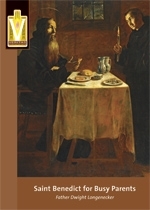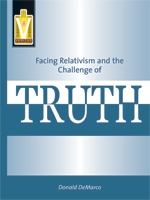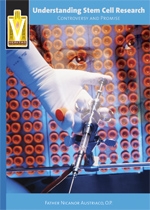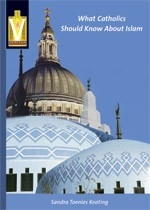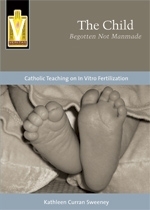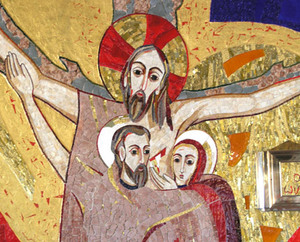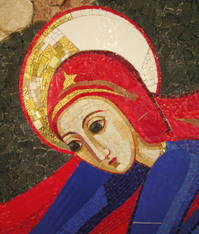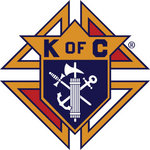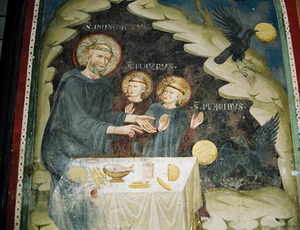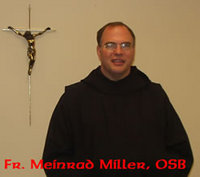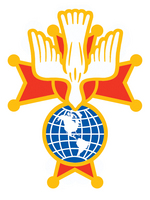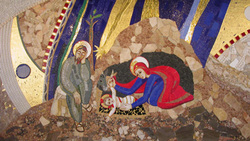AT THE FOREFRONT
Celebrating 20 years, the Pontifical John Paul II Institute for Studies on Marriage and Family seeks to transform and renew society
By Alton J. Pelowski
In 1987, Cardinal James Hickey of Washington, D.C., and Past Supreme Knight Virgil C. Dechant requested permission from the Vatican to establish an English-language campus, or session, of the Pontifical John Paul II Institute for Studies on Marriage and Family in Washington, D.C. Permission was granted, and thanks to financial and administrative support from the Knights of Columbus, the Institute’s North American presence began the following year.
Since that time, graduates have gone on to work in a variety of occupations and ministries. Many are employed in dioceses and parishes as directors of family life or religious education, while others are teachers at Catholic high schools or seminaries. Still others integrate their education into fields such as law, medicine and public policy work. Additionally, a number of books and resources on John Paul II’s theology of the body and related topics have been published in recent years, many by Institute faculty and alumni.
Today, after 20 years of steadfast support from the Knights of Columbus and with a new home on the campus of The Catholic University of America (CUA), the Pontifical John Paul II Institute continues to grow and remains faithful to its mission.
Back to Basics
The Pontifical John Paul II Institute for Studies on Marriage and Family was initially founded at the Pontifical Lateran University in Rome in response to the 1980 synod of bishops, which focused on the family. Yet, there is no doubt that John Paul II believed that issues related to marriage and family are of the utmost importance. Throughout his pontificate, he often repeated the words of his 1981 apostolic exhortation Familiaris Consortio (The Role of the Christian Family in the Modern World): “The future of humanity passes by way of the family” (86).
It is appropriate that the Institute bears John Paul II’s name, for the core content
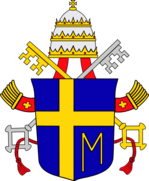 of its studies consists of the late pope’s vision of what it means to be a human being, created in the image and likeness of God. In addressing cultural confusion about human sexuality and human dignity from this broad perspective, the Institute is not concerned with simply debating moral norms or sexual ethics. “Rather, we need to recover the very concept of morality and why it’s important for the human being — why it liberates and doesn’t oppress,” explained Dr. David L. Schindler, provost and dean of the Institute’s Washington session. “We are faced,” he continued, “with a crisis of foundations and first principles.”
of its studies consists of the late pope’s vision of what it means to be a human being, created in the image and likeness of God. In addressing cultural confusion about human sexuality and human dignity from this broad perspective, the Institute is not concerned with simply debating moral norms or sexual ethics. “Rather, we need to recover the very concept of morality and why it’s important for the human being — why it liberates and doesn’t oppress,” explained Dr. David L. Schindler, provost and dean of the Institute’s Washington session. “We are faced,” he continued, “with a crisis of foundations and first principles.”
In a 2001 address to the Institute, John Paul II said that when people forget the principle of man’s creation, “the perception of the singular dignity of the human person is lost and the way is open for an invasive ‘culture of death.'” In other words, the theological and philosophical tenets of the Institute have enormous practical import, as they pertain to a person’s most basic understanding of himself and his relationship to the world.
Drawing on Scripture, sacred tradition and human experience, Pope John Paul II taught that the meaning of human life is ultimately revealed in Jesus Christ and rooted in the very nature of God as a Trinitarian communion of persons. Ultimately, he explained, a person can only be understood in light of one’s vocation to love. Moreover, a person’s identity as male or female — and as mother, father or child — are not merely accidents of biology or the result of “private” decisions.
“We are not abstract agents of choice and intelligence, as the modern world believes,” explained Schindler, who is a member of Potomac Council 433 in Washington, D.C. “Concretely, every human being is born as a child.” From this perspective, marriage and family are seen as central to understanding reality itself, and a major task of students at the Institute is to examine basic assumptions about human existence — assumptions about truth, freedom, the body, nature, grace and even technology.
“I was very pleased to discover the Institute was a very serious theological program, and at the same time, that seriousness is essential to evangelization,” said Pavel Reid, who was sent by the Archdiocese of Vancouver to study at the Institute in 2003. While working as the director of the Office of Life and Family, and testifying on behalf of the archdiocese about emerging political issues such as same-sex marriage, human cloning and embryonic stem-cell research, Reid recognized the need for a more adequate response.
“Before, I didn’t even know what questions to ask, but the professors were able to show us whole new levels of questioning,” he said. “There’s so much greater depth to the Church’s teaching and answers to contemporary problems than people realize.”
Reid has since worked as the director of young adult ministry for the Archdiocese of Military Services, USA, and is now a seminarian for the Archdiocese of Vancouver. A member of Coquitlam (B.C.) [Knights of Columbus] Council 5540, he encourages Knights not only to pray for the students and faculty of the Institute, but also to learn about and promote the Church’s wisdom.
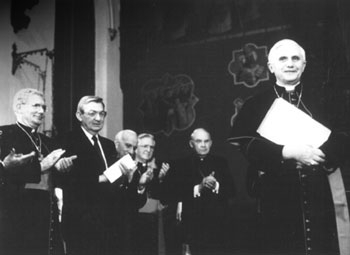
Then-Cardinal Joseph Ratzinger addresses the Pontifical John Paul II Institute for Studies on Marriage and Family in Washington, D.C., Jan. 20, 1990. Audience members include Past Supreme Knight Virgil C. Dechant (second from left).
The New Evangelization
“The Institute is really at the forefront of the new evangelization,” affirmed Father Brian Bransfield, who in September was named the executive director of the U.S. Conference of Catholic Bishops’ Secretariat of Evangelization and Catechesis. “They really capture all the ingredients of what is required to form a culture of life through a civilization of love.”
A priest of the Archdiocese of Philadelphia, Father Bransfield taught at a Catholic high school before receiving both licentiate (S.T.L.) and doctorate (S.T.D.) degrees in sacred theology from the Institute. Following his graduation in 2005, he taught moral theology at St. Charles Borromeo Seminary in Philadelphia. “When I would teach the categories of John Paul II, it spoke both to the heart and to the mind of the students,” he said. “They don’t know whether to take notes or just listen. It forms their memory, and they are on fire to bring this to other people.”
Although the depth of the writings of John Paul II, Pope Benedict XVI and others who have articulated the Church’s vision of the human person can be intimidating, Father Bransfield encourages his fellow priests and catechists to “go to the original sources and persevere.” It is important, he said, to take advantage of the numerous opportunities in the Church to share a truly Christian anthropology, such as in homilies, small faith groups, parish workshops and marriage preparation. “It’s a response to the culture on so many levels. It’s not an option.”
People find John Paul II’s insights attractive because they are logical and concrete, added Father Bransfield. When the teaching is grasped, it is “life changing and transformative,” he said.
The role of the Institute in furthering the new evangelization, in other words, goes much deeper than simply learning and repeating facts or arguments. Rather, its goal is to provide “education and formation at the most fundamental level,” Schindler explained.
Since a primary focus is on vocation and mission, rooted in one’s baptismal call, the Institute’s faculty is careful not to put undue importance on graduates’ occupations. “One of the main purposes of the education here is realized when people actually get married and have good families,” said Schindler.
“It’s not just a matter of getting the word out,” said Lisa Lickona, who pursued both master’s in theological studies (M.T.S.) and licentiate degrees from the Institute from 1991-1998. “The most significant thing is for people to embrace the Church’s teaching and live in such a way that compels others to ask, ‘What is making these people so happy?'”
With a love for theology, Lickona initially planned to teach higher education, but over the years, her goals changed. “I came to see that the work that would be most integral to the formation of my personality was first and foremost my work as a mother,” she said.
Today, Lickona lives on a small farm in McGraw, N.Y., with her husband and seven children. Although she still writes and speaks at various conferences, she sees that work as secondary. “To give myself to my family is precisely my vocation and precisely what God wants for me right now.”
Sister M. Maximilia Um, of the Congregation of the Sisters of St. Francis of the Martyr St. George, said studying at the Institute helped her to see the world differently and better understand her own vocation. “It instilled in me a radically new way of looking at all aspects of life with an attitude of contemplation,” she said. “I understand more profoundly that, before doing something, I am called to be someone before God,” added Sister Maximilia, who went on to receive a degree in Canon Law from CUA after graduating from the Institute in 2005. She now serves as the defender of the bond on the marriage tribunal for the Diocese of Springfield, Ill.
‘A Dream Come True’
In recent years, the Institute has seen considerable growth. Today, there are nearly 100 students enrolled at the Washington session, and many of the 318 alumni have graduated within the past five years. A Ph.D. program was added in 2004 and a master’s with a specialization in biotechnology and ethics was launched last year.
Internationally, the Pontifical John Paul II Institute is now also present in Mexico, Spain, Brazil, Benin, India and Australia, and there is interest in developing new sessions in several other countries. Indeed, it was the wish of John Paul II that the Institute would be present in every major language area.
Throughout the Institute’s brief history, the Knights of Columbus has been close at
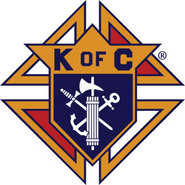 hand. The Order provides financial support and scholarships to the Washington session, and Supreme Knight Carl A. Anderson, the founding dean, continues to serve as its vice president. Most recently, the Institute received a new home on the CUA campus thanks to a donation from the Supreme Council. The building, renovated and renamed McGivney Hall after the Order’s founder, was blessed and dedicated Sept. 8. Before reading the statement of dedication, Vincentian Father David O’Connell, president of CUA, shared a word of gratitude with the Knights, saying “Today is a dream come true, and I thank you.”
hand. The Order provides financial support and scholarships to the Washington session, and Supreme Knight Carl A. Anderson, the founding dean, continues to serve as its vice president. Most recently, the Institute received a new home on the CUA campus thanks to a donation from the Supreme Council. The building, renovated and renamed McGivney Hall after the Order’s founder, was blessed and dedicated Sept. 8. Before reading the statement of dedication, Vincentian Father David O’Connell, president of CUA, shared a word of gratitude with the Knights, saying “Today is a dream come true, and I thank you.”
Prior to the dedication, representatives and friends of the Institute, the Knights and CUA gathered for Mass at the Basilica of the National Shrine of the Immaculate Conception in celebration of the Institute’s 20th anniversary and the beginning of a new academic year. Archbishop Donald W. Wuerl of Washington, vice chancellor of the Institute, observed in his homily, “This institute stands in the midst of our society and culture as the voice of the Catholic Church and offers an alternative to the failed vision of the secular world.”
In the face of many cultural challenges, the faculty, students and friends of the Pontifical John Paul II Institute for Studies on Marriage and Family face the future with a message of great hope.
Alton J. Pelowski is managing editor of Columbia and a 2006 graduate (M.T.S.) of the Pontifical John Paul II Institute for Studies on Marriage and Family at The Catholic University of America.
This article originally appeared in the November 2008 issue of Columbia magazine and is reprinted here with permission.



